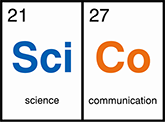SciCo operates primarily through a “Train the Trainer” framework, with most of its activities executed through digital or remote channels. Despite this unique model, SciCo upholds stringent policies to mitigate risks and prevent adverse occurrences.
1. Safeguarding and Protection from Sexual Exploitation and Abuse (PSEA):
Safeguarding is central to SciCo’s ethical foundation, with a zero-tolerance stance on any sexual exploitation or abuse. The PSEA protocols are designed to ensure the protection and safety of every individual involved in SciCo’s programs. All staff and volunteers receive thorough training in safeguarding practices, enabling them to recognize risks, understand their obligations, and act swiftly on any concerns. Through the PSEA policy, SciCo cultivates a secure and trustworthy environment, especially for vulnerable populations.
2. Child Protection (CP):
SciCo prioritizes children’s safety by implementing robust child protection policies. Recognizing the specific vulnerabilities of minors, the CP Policy enforces strict measures, including background checks for personnel, ongoing training, and continuous oversight. Accessible reporting channels are provided to children and caregivers, fostering trust and security within youth programs. These efforts ensure that children can engage, learn, and grow in safe, supportive environments.
3. Anti-Fraud and Anti-Corruption Policy:
SciCo places a high value on integrity and ethical operations. The organization has established a comprehensive anti-fraud and anti-corruption policy, including stringent internal controls and regular audits. This policy deters unethical conduct, while transparent reporting procedures ensure that any concerns that arise are promptly addressed. Through these measures, SciCo upholds the trust of its stakeholders, partners, and beneficiaries.
4. Accountability and Transparency:
The commitment to transparency and accountability informs SciCo’s approach to project management, financial reporting, and community relations. Regular updates and clear communication with stakeholders reinforce SciCo’s dedication to responsible governance, fostering mutual respect and shared purpose across its operations.
5. Diversity and Inclusion:
SciCo values diversity as an essential driver of effective science communication and education. The organization promotes an actively inclusive environment, ensuring equal access for all, particularly underrepresented and vulnerable groups. Through inclusive hiring practices, program design, and partnerships, SciCo champions respect for varied perspectives, encouraging creativity and collaboration. This framework also encompasses a commitment to gender equality, reflected in the organization's workforce, where women constitute the majority of the staff.
6. Resource Stewardship and Responsibility:
As a responsible steward of its resources, SciCo emphasizes sustainable, efficient management of financial, environmental, and human assets. Ethical spending, strategic project planning, and continual evaluation support SciCo’s mission, respecting the trust of donors and the communities it serves.
7. Feedback Mechanism:
SciCo regards feedback as a fundamental pillar of accountability and organizational improvement. Through structured feedback mechanisms (including surveys and focus group discussions), SciCo systematically integrates insights from beneficiaries and stakeholders into its programmatic adjustments. This responsiveness not only underscores SciCo's commitment to transparency but also exemplifies its ongoing pursuit of excellence and continuous enhancement.
8. Innovation and Creativity:
SciCo embraces innovation as a core element of impactful science communication. Through dynamic programming and adaptive educational methods, SciCo engages diverse audiences with inventive approaches, making complex subjects accessible and compelling.
9. Environmental Responsibility:
SciCo prioritizes environmental responsibility by adopting eco-friendly practices, reducing waste, and integrating sustainability into its programs. SciCo strives to be a good example of environmental stewardship, educating communities on sustainable science while minimizing its ecological footprint.
10. Empowerment and Capacity-Building:
SciCo fosters empowerment by developing skills and knowledge in the communities it serves. Capacity-building initiatives enable individuals to actively engage with science in a way that benefits society.
11. Partnership and Collaboration:
Understanding the power of collective action, SciCo values partnerships with organizations, institutions, and communities. These collaborations maximize resource sharing, expertise, and outreach, leading to broader and more enduring outcomes.
12. Ethical Integrity:
Ethical integrity guides all of SciCo’s actions. The organization maintains the highest standards of respect and responsibility, reinforcing trust with stakeholders. SciCo adheres strictly to ethical guidelines, aligning its actions with its mission and values.
13. Responsiveness and Adaptability:
SciCo is committed to being responsive to evolving community needs and emerging global trends. By listening to feedback and adjusting its programs as necessary, SciCo ensures it remains relevant and effective in fulfilling its mission. This adaptability enables the organization to respond to current and future challenges with timely solutions.
 English
English Ελληνικα
Ελληνικα